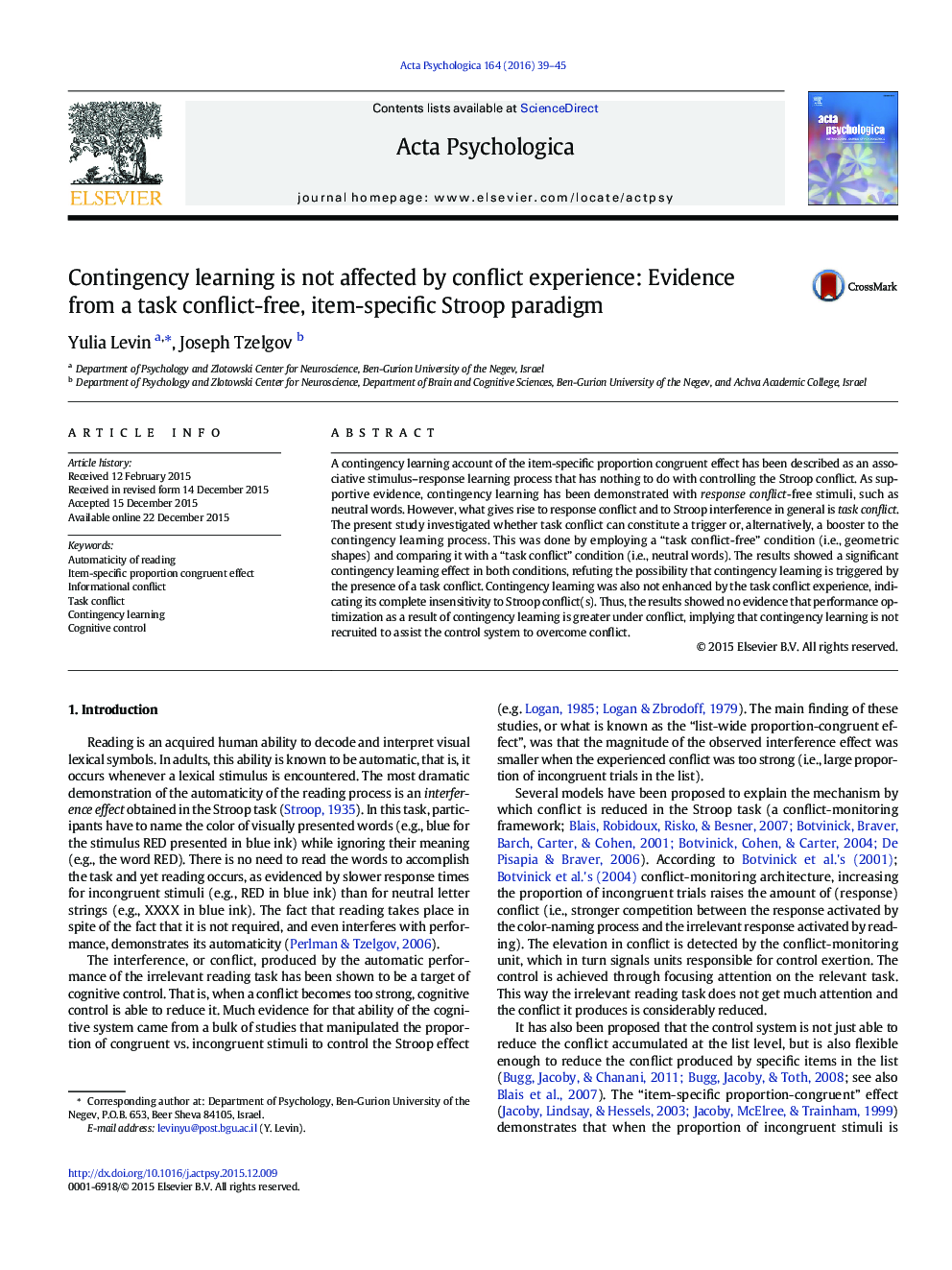| Article ID | Journal | Published Year | Pages | File Type |
|---|---|---|---|---|
| 919655 | Acta Psychologica | 2016 | 7 Pages |
•Schmidt et al. showed that contingency learning is independent of response conflict.•However, in their reported experiments, task conflict was constantly present.•We asked whether contingency learning could be affected by task conflict.•We found that contingency learning is not triggered or enhanced by task conflict.•Our results imply that contingency learning does not function to “assist” control.
A contingency learning account of the item-specific proportion congruent effect has been described as an associative stimulus–response learning process that has nothing to do with controlling the Stroop conflict. As supportive evidence, contingency learning has been demonstrated with response conflict-free stimuli, such as neutral words. However, what gives rise to response conflict and to Stroop interference in general is task conflict. The present study investigated whether task conflict can constitute a trigger or, alternatively, a booster to the contingency learning process. This was done by employing a “task conflict-free” condition (i.e., geometric shapes) and comparing it with a “task conflict” condition (i.e., neutral words). The results showed a significant contingency learning effect in both conditions, refuting the possibility that contingency learning is triggered by the presence of a task conflict. Contingency learning was also not enhanced by the task conflict experience, indicating its complete insensitivity to Stroop conflict(s). Thus, the results showed no evidence that performance optimization as a result of contingency learning is greater under conflict, implying that contingency learning is not recruited to assist the control system to overcome conflict.
